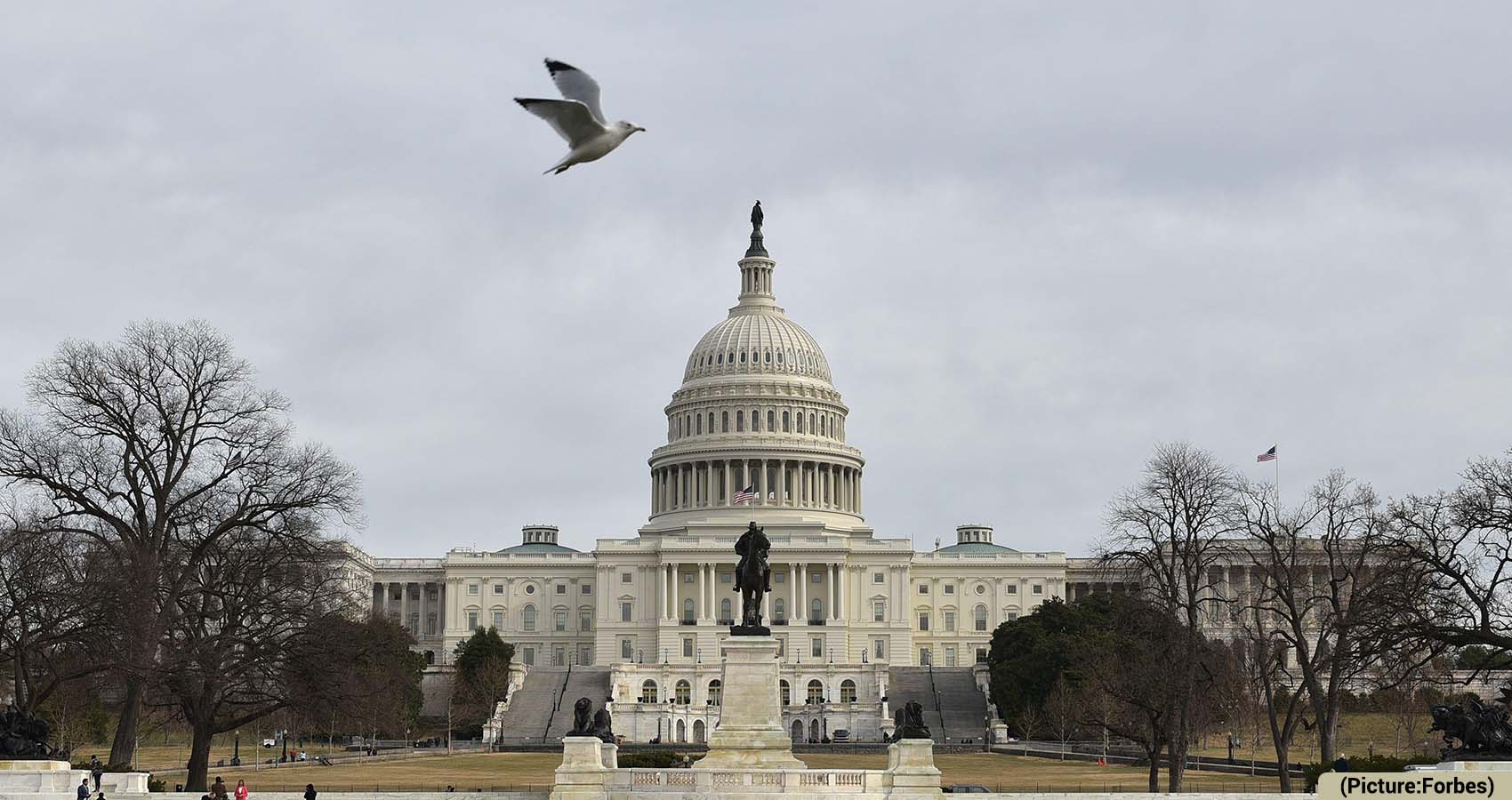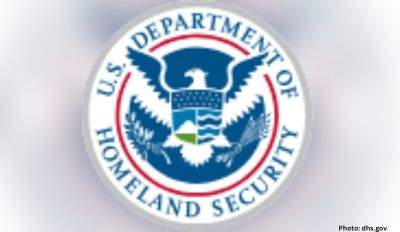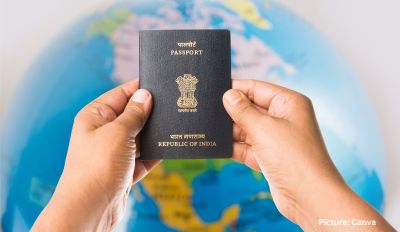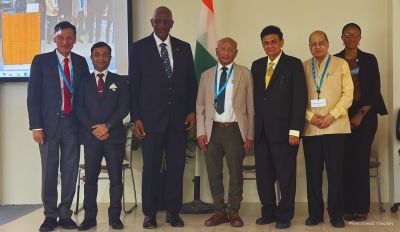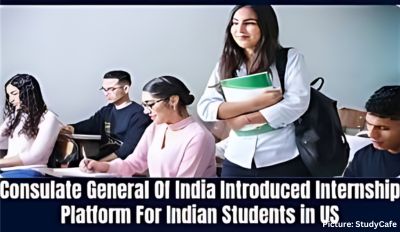Amendments to a recently passed House bill will expand immigration opportunities for foreign-born scientists and engineers. If retained during negotiations with the Senate, the measures in the bill could become the most significant on legal immigration to pass Congress in more than 30 years.
Supporters of the provisions will argue that no bill promoting innovation can justify not including improved ways to attract and retain foreign-born talent. More than 70% of the full-time graduate students at U.S. universities in electrical engineering, industrial engineering and computer and information sciences are foreign nationals. Members of Congress have recognized that other countries are doing a better job than the United States attracting and retaining such talent.
House Bill: On February 4, 2022, the U.S. House of Representatives passed the America COMPETES Act 222 to 210 with only one Republican vote. In June 2021, the Senate passed a similar bill. There are enough differences between the two bills to make final passage uncertain.
Significant Immigration Provisions: On January 25, 2022, the House Rules Committee added Rep. Zoe Lofgren’s (D-CA) LIKE Act to create an immigrant startup visa and also an exemption from annual green card limits and backlogs for foreign nationals with a Ph.D. in STEM (science, technology, engineering and math) fields. Because of the potential to provide new opportunities for entrepreneurs and top researchers around the world, these two additions, in the long run, might produce more innovations in the United States than all the other sections of the nearly 3,000-page bill. Both measures fund additional scholarships for U.S. students in STEM fields by charging $1,000 supplemental fees for those receiving a green card or status under the legislation.
As discussed here, the bill creates a temporary visa for foreign-born entrepreneurs who qualify and “Allows the founder to apply for and receive lawful permanent residence if the startup entity meets certain additional benchmarks.” The lack of a startup visa disadvantages the U.S. compared to other nations like Canada in retaining and attracting foreign-born entrepreneurs. The absence of a startup visa and the per-country limit caused Jyoti Bansal to wait 7 years for a green card before he could start AppDynamics, which grew to employ over 2,000 people and was valued at $3.7 billion when Cisco acquired it in 2017.
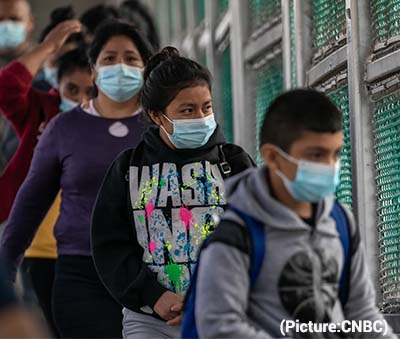 Exempting individuals with Ph.D.s in STEM fields from annual green card limits would relieve many from long wait times for permanent residence and (indirectly) reduce the decades-long waits for other highly skilled immigrants. The provision would allow U.S. employers to gain a significant competitive edge by offering the chance at permanent residence to outstanding researchers from around the world, including those early in their careers and engaging in cutting-edge work. (See here.)
Exempting individuals with Ph.D.s in STEM fields from annual green card limits would relieve many from long wait times for permanent residence and (indirectly) reduce the decades-long waits for other highly skilled immigrants. The provision would allow U.S. employers to gain a significant competitive edge by offering the chance at permanent residence to outstanding researchers from around the world, including those early in their careers and engaging in cutting-edge work. (See here.)
Katalin Karikó, who produced the underlying research breakthrough that made messenger RNA possible for life-saving vaccines, could have benefited from a special green card provision for Ph.D.s. Karikó earned her Ph.D. in Hungary and toiled for years in America, first as a postdoctoral researcher, before her work became recognized as life-saving. Approximately 56% of postdoctoral researchers work on temporary visas, with many in biological sciences, medical sciences, engineering and research and development. The new measure would allow many more an opportunity to stay in and contribute to the United States.
“The America COMPETES Act also helps build our domestic STEM workforce and encourages start-up companies to establish roots here,” Rep. Lofgren said in a statement. “Individuals who earn STEM doctoral degrees from top research universities in the U.S. will be able to quickly obtain permanent residence and founders of start-up companies will have a chance to grow their companies here. These measures will help ensure that America is once again the number one destination for the best and brightest innovators and the next generation of entrepreneurs worldwide.”
Does The House GOP Understand Its Position On Immigration Aligns With The Chinese Communist Party’s Leadership?: If the Chinese Communist Party lobbied in Congress, it likely would have applauded a statement issued by House Minority Leader Kevin McCarthy (R-CA) that called for removing the bill’s provision to bring more Ph.D.s in STEM fields to the United States.
Analysts who have studied China and its technology plans understand that the country’s leadership fears a more open U.S. immigration system able to attract high-level science and engineering talent. It would welcome removing from the bill measures to attract STEM talent to America.
“Chinese leaders understand the extent to which the United States benefits from international talent inflows,” writes Remco Zwetsloot in a report for the Center for Strategic and International Studies. “They therefore celebrate America’s flawed immigration system and fear reforms that would improve U.S. talent attraction and retention. Commenting on U.S. retention of Chinese STEM students, the head of the CCP’s Central Talent Work Coordination Group has complained that ‘the number of top talents lost in China ranks first in the world.’”
Zwetsloot cites a Chinese artificial intelligence white paper that found U.S. immigration restrictions “have provided China opportunities to bolster its ranks of high-end talent.” Moreover, “The deputy editor of China Daily USA, a government newspaper, said that expansion of the U.S. employment-based immigration system ‘would pose a huge challenge for China, which has been making great efforts to attract and retain talent.’”
The evidence indicates removing the provision to provide more green cards for Ph.D.s in STEM fields would please the leaders of China and hurt the ability of U.S. companies to compete globally.
Ross Amendment Adds Health Professions: An amendment at the Rules Committee sponsored by Rep. Deborah Ross (D-NC) added “health professions and related programs” to the STEM fields for which Ph.D.s are eligible under the bill to be exempt from the annual limit on employment-based green cards. The bill already covered physicians with a medical residency.
In a press statement, Rep. Ross elaborated on who would be added under “health professions and related programs” in her amendment by including a link to the Classification of Instructional Programs covered: “Expand the bill’s green card cap exemption for individuals with doctorates in STEM fields to include individuals with doctorates in these health care fields.”
Foster Amendment Adds Dual Intent For Many International Students: An amendment sponsored by Rep. Bill Foster (D-IL) provides international students on F visas in STEM fields with “dual intent.” That means a consular officer no longer will need to be convinced a student in a STEM field will not seek permanent residence in the United States. The Biden administration recently reversed restrictive guidance in the Foreign Affairs Manual—added during the Trump administration—that would have a similar effect to the Foster amendment. However, a law is more difficult than guidance for a new administration to change.
Manning Amendment Expands Eligibility For STEM Green Card Exemption: An amendment sponsored by Rep. Kathy Manning (D-NC) expanded the exemption from the annual numerical limit for green cards for Ph.D.s in STEM fields to include individuals with a master’s degree “in the case of an alien who works in a critical industry.”
What is a critical industry? “The term ‘critical industry’ means an industry that is critical for the national security or economic security of the United States, considering key technology focus areas and critical infrastructure,” according to the America COMPETES Act. The term “critical infrastructure” under 42 U.S.C. 5195c “means systems and assets, whether physical or virtual, so vital to the United States that the incapacity or destruction of such systems and assets would have a debilitating impact on security, national economic security, national public health or safety, or any combination of those matters.”
In sum, like most new laws, regulation will define the scope of the provision, but it is likely to include several technology specialties.
E-4 Visas For Specialty Occupation Professionals From South Korea: An amendment by Rep. Gerry Connolly (D-VA) would add South Korea as a country from which the United States can accept, on a reciprocal basis, specialty occupation professionals in a new E-4 status. The annual limit is 15,000, though the experience with Australia is far fewer visas likely would be used each year.
The bill also includes immigration and human rights measures for Uyghurs and residents of Hong Kong.
Challenges in the Senate: Before the House-passed immigration provisions become law, they must overcome three challenges in the Senate. First, the bill will require 60 votes to overcome a filibuster, meaning a compromise with Republicans in the Senate is necessary.
The Senate’s version of the bill passed 68-32 in June 2021, so there has been bipartisan support for the legislation. “Sen. Todd C. Young (R-Ind.), who was a lead proponent of the Senate bill, said the House measure would have to undergo large changes for a deal to be struck,” reported the Washington Post. “[Commerce Secretary Gina] Raimondo said that the most contentious of the numerous partisan disagreements over the House package concerned its trade-policy changes,” according to the Wall Street Journal.
Second, it is unclear if there are Senate Republicans who will oppose the House-passed immigration provisions, but given Rep. McCarthy’s statements, that is a possibility. Third, it is unknown whether Senate Democrats will fight to keep the immigration measures. In the past year, most of the immigration energy among Senate Democrats has focused on legalizing individuals here without lawful status.
An optimist would say the time has come for change. The year 1990 was the last time Congress passed legislation that included legal immigration reforms as significant as startup visas for immigrant entrepreneurs and a smooth path to permanent residence for the world’s top scientists and engineers. A pessimist would take the opposite position: If it’s a good provision on immigration, it likely won’t become law. Members of Congress have the rest of the year to prove the pessimists wrong.

